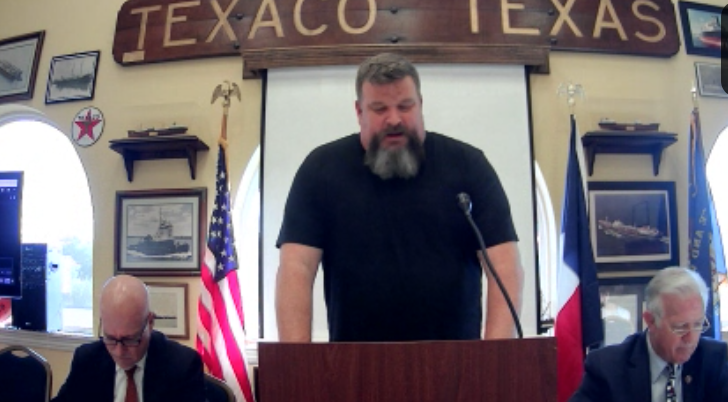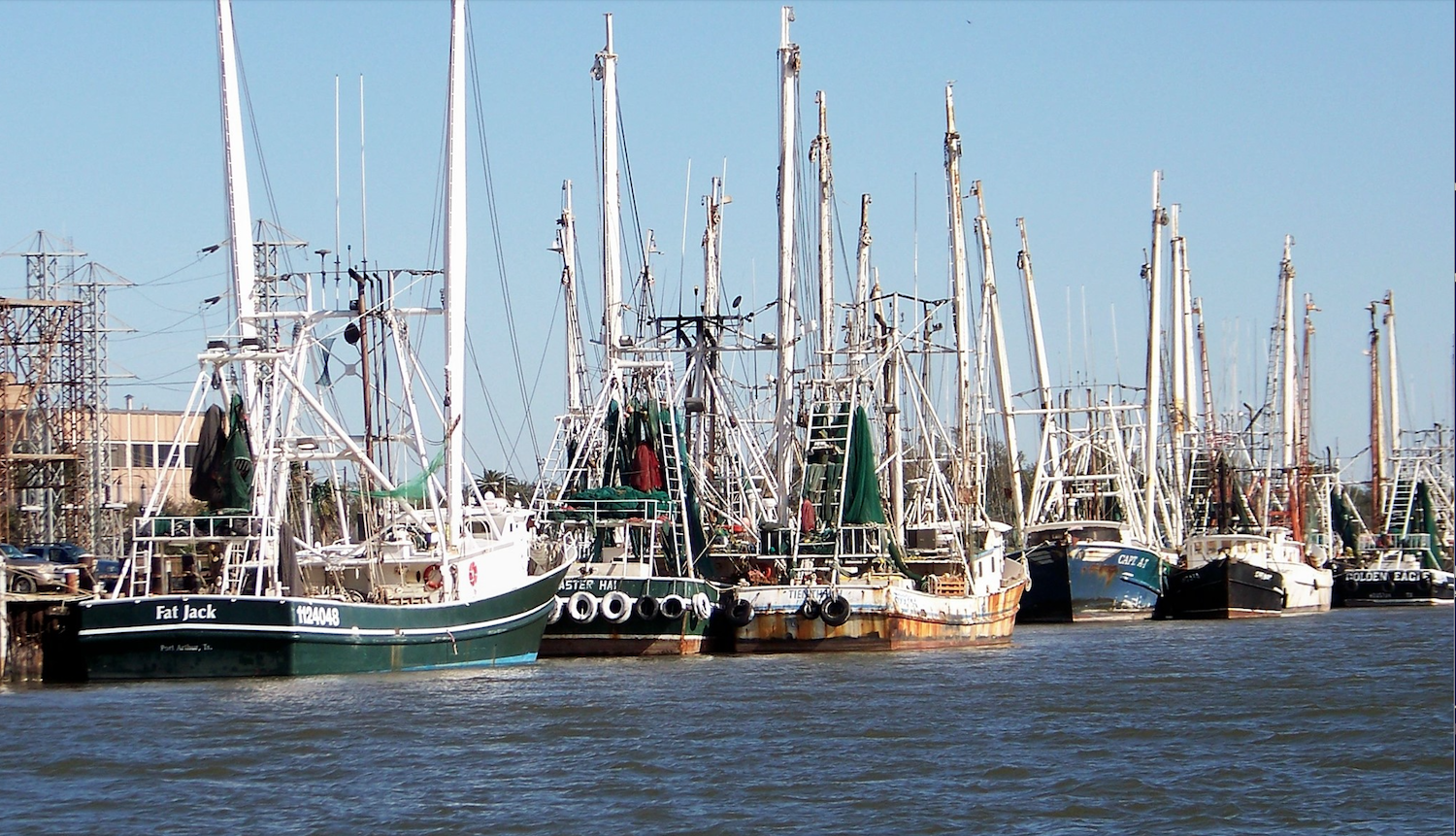U.S. fishermen facing escalating fuel costs, a flood of cheap imported shrimp and massive frozen inventory need a new unified front across state lines and help from Congress, said shrimp captains and supporters meeting Nov. 7 in Port Arthur, Texas.
“We’ve had a free fall like I’ve never seen in 22 years in the industry,” said Trey Pearson, president and general manager of JBS Packing in Port Arthur, one of the biggest U.S. shrimp processors.
Pearson and others spoke of the bad-luck trifecta hitting the shrimp industry now: fuel costs, growing volume of cheap and low quality imports, and surplus supply in cold storage.
“There are 600 million pounds of shrimp here now that will be consumed in the next year,” Pearson said Thursday at the meeting hosted by the Port Arthur Area Shrimpers Association with Rep. Randy Weber, R-Texas, at the Port Arthur International Seafarers Center.
National retailers built up inventory “like covid was going to last two or three years” and the surplus continues to push prices downward, he said.
“We are definitely in a cycle that is going to be very difficult for us to get through,” said Pearson.
Those conditions are spread throughout the Gulf of Mexico, said Andrea Hance, executive director of the Texas Shrimp Association.
“High fuel, low prices, and I don’t think this has hit you guys yet, but we have a huge labor shortage,” Hance said of Texas ports to the south of Port Arthur, where “we have to pay out of our pocket for keeping crews.”
Port Arthur fishermen said they are feeling that pressure too.
Speaking on behalf of the Port Arthur coast’s Vietnamese-American community, Captain Bihn Hahn stressed they have fished there since the mid-1970s and “this is all that we know.”
“We’re going to wait it out,” he said of the ongoing cost crunch. Hahn told how he had to tie up for month and a half: “I was upside down for a while.”
One way state lawmakers can help is to pass measures like Louisiana’s 2019 law requiring the state’s restaurants to disclose if they are serving imported shrimp and crawfish, said Hance. Imports now flood the U.S. market at estimates topping 2.2 billion pounds annually, she said.
“We have to do something,” and that requires a push across state lines, she said.
Mark Viator, the Sabine Pass Port Authority port director, said he had talked with fishermen about those issues and agreed “we need Congressman Weber in a big way.” That was one start for the regional meeting at Port Arthur.
“The only way to get things changed is to build a coalition,” said Viator, recalling recovery efforts after Hurricane Rita in 2006. The shrimp industry and supporters need to do the same now from Texas to Georgia, he said.
“You have to get enough interest across state lines to get support in Congress,” Viator said in an interview with National Fisherman. “People are not aware of the problem, so you need media attention.”
That in turn can command more attention from political leaders, said Viator. Weber can be a valuable ally because his Texas 14th congressional district includes seven Gulf ports; he is a member of the House Transportation and Infrastructure Committee and serves on the Water Resources and Environment, Coast Guard and Maritime Transportation subcommittees.
Competition from cheap imported shrimp is now amplified by the effect of a strong U.S. dollar on trade balance. Lower prices combined with this year’s spike in fuel costs has forced some captains to tie up. Diesel at the Sabine Pass Port Authority marina was selling for $4.679 a gallon this week.
“We had over 140 shrimpers signed up for the meeting yesterday. They filled the room out into the hallway. They’re not making money, so they came,” said Viator. Word of the meeting was spread on the docks and over citizens’ band radio frequencies used by local crews, he said.
“The key is we need to build a coalition across state lines” that can bring the industry’s priorities to lawmakers, said Viator. “When you go to Congress, you’ve got to know what the ‘ask’ is.”
The Port Arthur region shrimp fishermen have labored to build a distinctive community over a half-century. Now they need help beyond their own area, as do other Gulf fishermen, said Father Sinclair Oubre, a meeting organizer and diocesan director for Stella Maris, the Catholic ministry to seafarers in the Diocese of Beaumont.
“Basically it’s upside down. Shrimp is like $2.50 a pound and diesel is $4.25,” said Oubre, a Port Arthur native. The shrimping community has few political connections, he noted.
“They’re not out in Austin (the state capitol), they’re not at county meetings,” said Oubre. When competition and conflicts arise over politics and the shrimp resource, “they’re not confronting these groups, so they get slammed.”
Tommy Tran, a well-known figure in the shrimp fleet, told Weber the situation is as serious as he’s ever seen.
“Thirty-five years ago shrimp was $4.30 a pound, today it’s $2.50,” said Tran. “You see, Congressman, we can’t make ends meet.”








